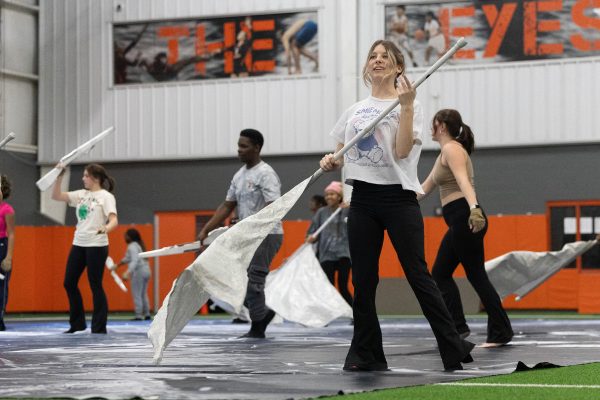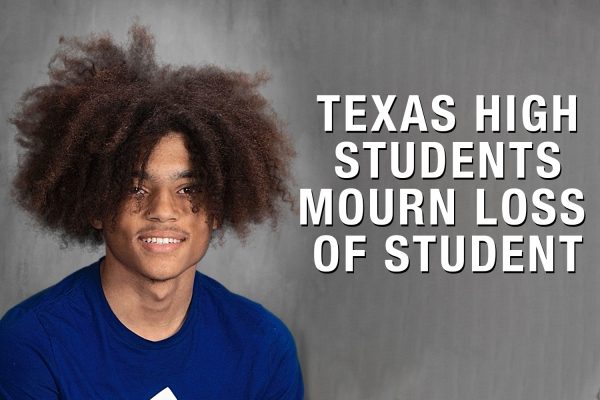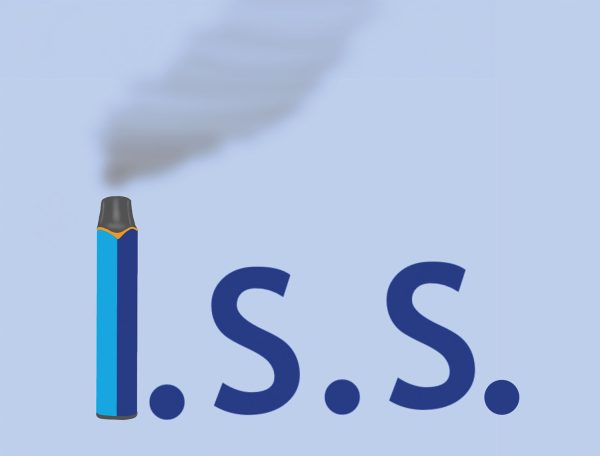Legislation banning transgender athletes introduced
Texas Senate debate on whether UIL can disqualify transgender athletes
Mack Beggs, state wrestling champion and 17-year-old transgender student from Euless Trinity, at his home in Hurst, Texas on February 28, 2017.
May 23, 2017
A bill concerning transgender student athletes will soon come into the realm of discussion in the Texas Senate. This legislation, titled Bill 2095, will allow high school athletic organizations to decide whether or not transgender participants will be permitted to compete against other students.
If the bill passes, the University Interscholastic League will be able to discern the fairness of a competition and will be able to disqualify a student if the safety of a competitor or the integrity of an event is put in jeopardy.
Concerns are primarily focused on students’ usage of hormone enhancements and steroids, thus the legislation requires that contestants alert the UIL directors of medical treatments that have been employed. It also stipulates that other medical history and related issues be reported to UIL in case of an emergency in a competition.
However, UIL currently does not allow the use of steroids in cases except those pertaining to a valid medical purpose, or if they were administered by a professional. They also ban students from competing against those of the opposite sex.
Depending on which way the bill develops, the state could also deny any student that is taking steroids access to competition.
Tiger Times Online reached out to Texas Senator Bob Hall and the UIL Athletic Director, but neither one provided a statement. The Texas High Athletic Director, Gerry Stanford, gave few remarks on the debate. However, Principal Brad Bailey responded that Texas High will follow policy procedures with additional support to any student who requests such measures.
“It’s something that we would obviously pay close attention to and make sure we are in compliance with all policies and procedures that the state and UIL have outlined. But right now, since it’s kind of new, if we do have a situation like that then we will look at it and observe it, and see what’s best for the student and what’s best for the school,” Bailey said. “If you’re trying to aid or advance the sport by manipulating the sport, then that’s wrong. I think you have to look at it and see how it’s based on the individual situation of each person. ‘To be determined’ would be my response because we want everyone to be included, and we want everyone to feel respected, and if the UIL says that you identify with the sport that’s recognizable by your [biological sex], then that’s the policy we have to go by.”
Freshman Atlas Hines, a trans-male, is shocked and believes that UIL athletics should be measured by skill, not by gender identity.
“It’s kind of bogus. Especially if they’re talking about using the hormones as an advantage, that’s not how it works,” Hines said. “For female to male, if they were to take testosterone, it wouldn’t make them ‘hulk’ strong or anything, it wouldn’t put them at any sort of advantage. So I don’t think that’s appropriate. I’ve never participated, but that’s really oppressive. I think it should be based on what the students can do and not their gender identity, or gender expression. It should be decided on skill level, and if it’s fair.”




















